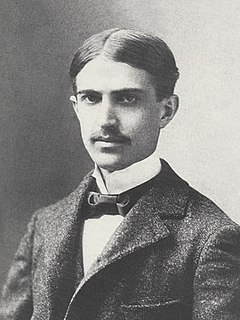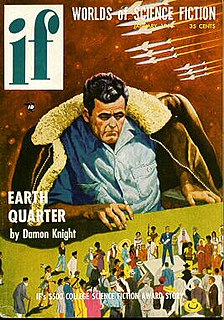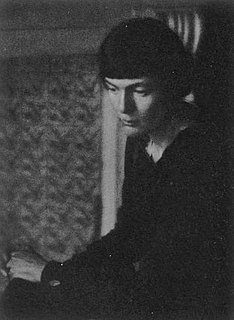A Quote by Herbert Spencer
No philosopher's stone of a constitution can produce golden conduct from leaden instincts.
Quote Topics
Related Quotes
Looking to future generations, there is no cause to fear that the social instincts will grow weaker... the social instincts, - the prime principle of man's moral constitution - with the aid of active intellectual powers and the effects of habit, naturally lead to the golden rule, "As ye would that men should do to you; do ye to them likewise"; and this lies at the foundation of morality.
The belief, not only of the socialist but of those so-called liberals who are diligently preparing the way for them is that by due skill an ill working humanity may be framed into well-working initiations. It is delusion. The defective natures of citizens will show themselves in bad acting of whatever social structure they are arranged into. There is no political alchemy by which you can get golden conduct out of laden instincts.
The finest imagination in the world could not have conceived of a better idea than the philosophers' stone to inspire the minds and faculties of men. Without it, chemistry would not be what it is today. In order to discover that no such thing as the philosopher's stone existed, it was necessary to ransack and analyze every substance known on earth. And in precisely this lay its miraculous influence.
A rock or stone is not a subject that, of itself, may interest a philosopher to study; but, when he comes to see the necessity of those hard bodies, in the constitution of this earth, or for the permanency of the land on which we dwell, and when he finds that there are means wisely provided for the renovation of this necessary decaying part, as well as that of every other, he then, with pleasure, contemplates this manifestation of design, and thus connects the mineral system of this earth with that by which the heavenly bodies are made to move perpetually in their orbits.
Any art that you are playing based on effort, loses something. I think that most of the time it should be something that happens, and you are inspired, and you just feel and follow your instincts. The best chiseled sculptures happen when the sculptor looks at the stone and says "I saw this sculpture in the stone, and I had to get it out." It's not contrived.
Every thing thinks, but according to its complexity. If this is so, then stones also think...and this stone thinks only I stone, I stone, I stone. But perhaps it cannot even say I. It thinks: Stone, stone, stone... God enjoys being All, as this stone enjoys being almost nothing, but since it knows no other way of being, it is pleased with its own way, eternally satisfied with itself.
Strictly speaking, there are no such things as good and bad impulses. Think...of a piano. It has not got two kinds of notes on it, the 'right' notes and the 'wrong' ones. Every single note is right at one time and wrong at another. The Moral Law is not any one instinct or set of instincts: it is something which makes a kind of tune (the tune we call goodness or right conduct) by directing the instincts.








































